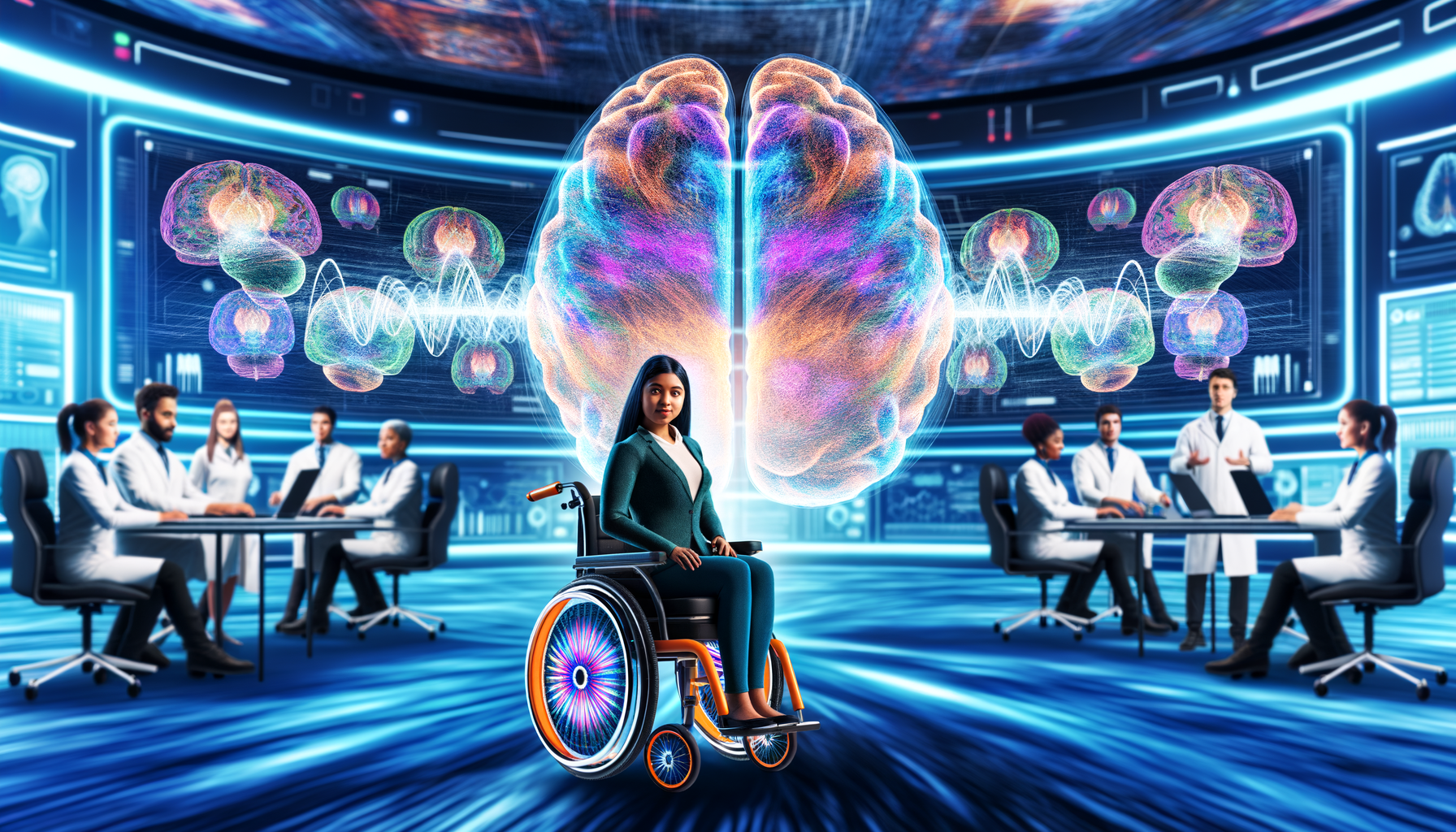Exploring Innovation: Safaricom’s AI Breakthroughs and China’s Neurotechnology Advances
In today’s fast-changing world, technology leads the way for new ideas and advancements. Companies and nations alike are investing in the latest tools to improve how we live and work. In this post, we will explore two exciting topics: how Safaricom is using artificial intelligence (AI) and virtual assistance to better serve customers, and how China’s recent advances in neurotechnology are calling into question claims made by Elon Musk about paralysis research. Our discussion will be clear, passionate, and written in simple language so that everyone can understand these important innovations.
Safaricom and the Power of AI
Safaricom, one of Africa’s leading telecommunications companies, has embraced modern technology in many ways. Through the use of artificial intelligence (AI), virtual assistants, and other smart solutions, the company is modernizing how services are delivered to its customers. AI is a type of computer technology that allows machines to learn from data collected over time, thereby improving the service they offer.
For instance, virtual assistants at Safaricom can help customers get answers about their data plans quickly and efficiently. This technology not only speeds up communication but also ensures that payments and data requests are processed with fewer errors. By harnessing the latest developments in AI, Safaricom is able to meet customer needs in a fast and reliable manner.
The impact of these strategies has been very positive. Customers report an easier, smoother experience when interacting with the company. Many are “thrilled with the speedy service,” and they love how technology makes interactions seem more personalized and friendly. For more detailed information on how AI is changing telecommunications, you might want to read this insightful article on Forbes Tech Council.
What is Artificial Intelligence and Virtual Assistance?
To understand the benefits of Safaricom’s approach, it is important to explain the key terms. Artificial Intelligence is like the brain of a computer that adapts and learns from previous experiences. Virtual assistance uses this intelligence to help users answer questions, manage tasks, and even solve technical problems. With AI, machines are able to learn from patterns in a way that is similar to how humans learn, although much faster and often with fewer mistakes.
When companies like Safaricom invest in these technologies, they are setting up systems that can handle challenges on a large scale. This means faster problem solving, fewer delays in service, and a more precise approach to everyday issues. The company’s commitment shows that innovation is at the heart of progress.
China’s Neurotechnology Innovation: A New Chapter in Medical Research
While Safaricom is making waves in the telecommunication sector, another exciting field is emerging from China: neurotechnology. Neurotechnology refers to the tools and methods that help us understand and interact with the human brain. Recently, Chinese researchers have introduced innovative methods that are challenging the claims made by some experts, including Elon Musk, particularly those related to paralyzed patients.
Elon Musk, known for his ambitious projects and futuristic claims, some time ago suggested that advanced neurotechnology could help paralyzed patients regain movement. However, recent work in China is showing a more nuanced picture. Chinese studies are pushing the boundaries of what is possible, using modern implants and brain-computer interfaces to give hope where there was little before.
For an in-depth look at neurotechnology advances, visit this article on the ScienceDirect website about neurotechnology, which explains these incredibly forward-thinking methods and the science behind them.
Debating the Claims: Musk versus Chinese Researchers
The debate has grown around whether the optimistic claims made by Musk are truly in line with current technology. In a mix of excitement and caution, Chinese experts have published papers showing results that challenge these claims. Critics argue that while progress is being made, it is important to address potential risks and ethical concerns.
Many experts suggest that instead of rushing into big promises, we should build a solid understanding of the technologies involved. Recent findings in China are a strong reminder that science moves forward step by step, and not all predictions turn out exactly as expected. As one researcher noted in an interview, “Our results show that while there is promise, more cautious steps are needed before wide application.” This honest discussion is important when dealing with groundbreaking technology.
It is crucial to look at these innovations critically. Bold steps must always be tempered with a deep respect for scientific and ethical standards. The progress seen in China does not merely show that ideas can work, but that they need careful study before they are widely accepted. Understanding both the promise and the limitations of neurotechnology helps us build a safer future.
Why These Developments Matter
Both of these stories show us the importance of investing in research and innovation. Whether it is Safaricom using AI to change the way we interact with technology or Chinese scientists pushing the limits of what is possible with neurotechnology, the aim is to improve lives.
Modern technology helps reduce waiting times, solve problems faster, and even provide hope for patients who need new treatments. Each step taken in these fields makes the world a better place and inspires the next generation of innovators. We should all be excited to see how these advances can guide us to a future filled with new opportunities.
For readers interested in learning more about these topics, I encourage you to explore additional detailed articles such as this deep dive from MIT Technology Review on the next wave of AI, and another piece on ethical challenges in neurotechnology from Nature.
Looking to the Future
The journey of technology is never-ending, and we are only at the start of discovering its full impact. Safaricom’s use of AI to deliver better customer service shows how technology can simplify and enhance everyday life. In parallel, China’s advancements in neurotechnology indicate that breakthroughs in medicine are closer than ever.
It is important to stay informed and engaged with these trends. They affect economies, change lifestyles, and reshape how we think about health and communication. As young learners and future leaders, understanding the basics of these advancements prepares us for a world dominated by technology and innovation.
What remains clear is that every step forward is built on a strong foundation of research, ethical inquiry, and a commitment to improving human lives. The blend of passion and rigorous research drives progress. We must applaud the efforts of companies like Safaricom and research teams in China, and support further advances in technology.
Final Thoughts
With each new development, our world becomes more connected and our problems more solvable. Whether it is through improving customer service with AI or treating paralysis with advanced neurotechnology, the potential for a better future is enormous. Let us embrace these advances with both excitement and a clear mind.
This post is a celebration of those who dare to push the limits of what is possible. By learning from and questioning bold claims, such as those made by high-profile figures like Elon Musk, we can pave a well-informed and thoughtful path toward progress. The future is bright, and it is built one discovery at a time.



